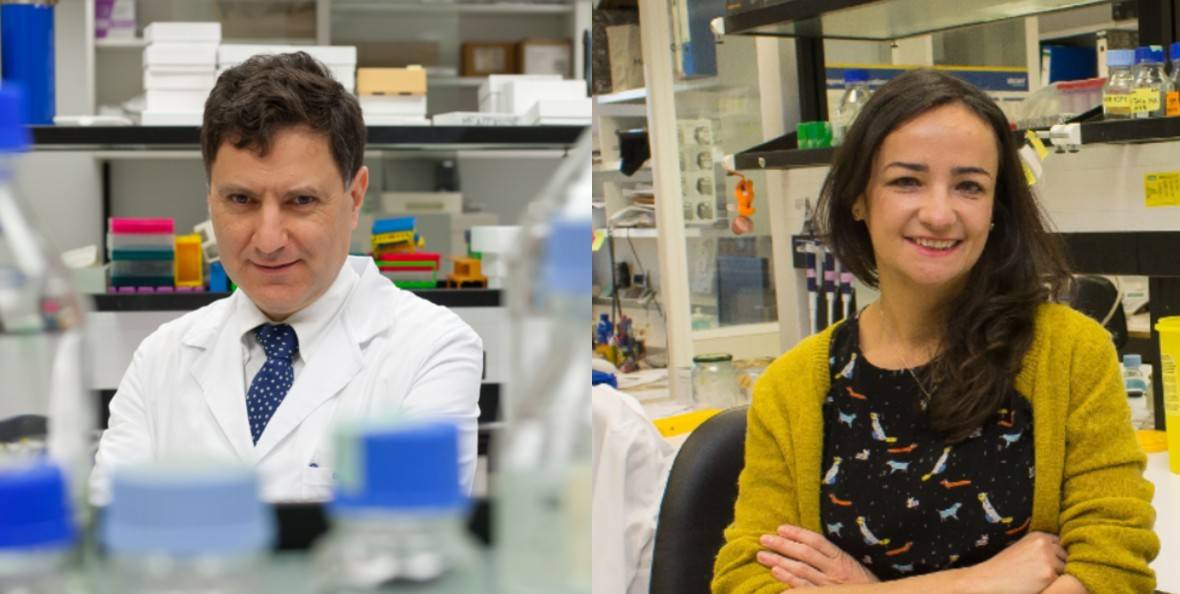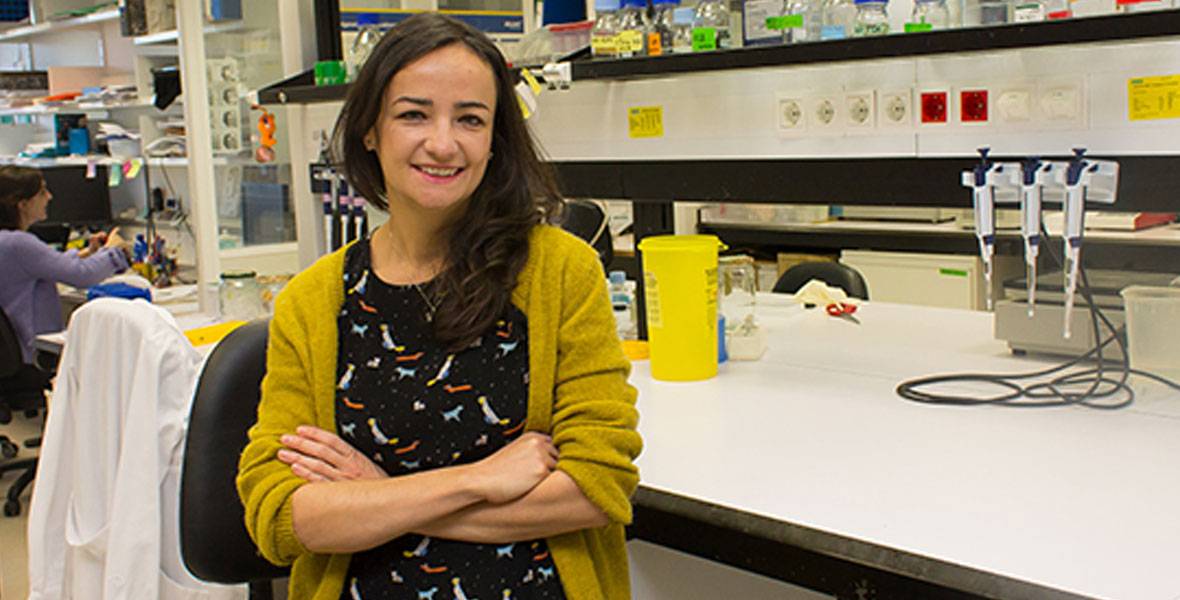Noncoding RNA and cancer genome
"We investigated how lncRNAs contribute to the mechanisms of gene expression regulation in cancer cells."
DR. MAITE HUARTE RESEARCHER. NONCODING RNA AND CANCER GENOME GROUP
In recent years there has been a major change in the conception of genome regulation. We now know that most of the cell's transcripts are generated from "non-conventional" genes that do not encode proteins, and a very significant part of them give rise to long noncoding RNA molecules (lncRNAs). Despite not coding for proteins, lncRNAs regulate genome functions and gene expression, and their alterations are inherent to diseases.
The Cima Noncoding RNA and cancer genome Group, integrated in the Cancer Center Clínica Universidad de Navarra, focuses its efforts on understanding how lncRNAs influence the regulation, propagation, and expression of the genome of cells, and how their functions are altered in cancer. This will help develop better therapies and diagnostics for this disease.
Our research combines the application of genomics, epigenomics, and molecular biology techniques with the analysis of patient samples.

Dra. Maite Huarte
GROUP LEADER
| +34 948 194 700 | Ext. 814000 | |
| maitehuarte@unav.es | |
| Research profile | |
| X/ Twitter |
Oncology research integrated in the
Cancer Center Clinica Universidad de Navarra

Objectives of our research
To deepen the knowledge of the functions of lncRNAs and their molecular mechanisms.
Identify novel lncRNAs and their linkage to cancer.
Contribute to the development of improved cancer therapies and diagnostics based on lncRNAs.

FROM THE LABORATORY DIRECTLY TO THE CLINIC
Our group has found that lncRNAs have critical functions associated with tumor suppressor or oncogenic genes, such as p53 or MYC, playing a key role in tumor transformation.
We have recently identified a new lncRNA called ALAL-1 that helps lung cancer cells evade the immune system. The blockade of ALAL-1 could drive anti-tumor therapies for these patients.
Meet the research team










Scientific activity of the Noncoding RNA and cancer genome Group
Latest scientific publications
- A lncRNA-mediated metabolic rewiring of cell senescence [SP] May 21, 2025 | Magazine: Cell Reports
- Uncovering functional lncRNAs by scRNA-seq with ELATUS Nov 9, 2024, | Magazine: Nature Communications
- YTHDC1 m6A-dependent and m6A-independent functions converge to preserve the DNA damage response Aug 15, 2024 | Magazine: The EMBO Journal
- The chromatin-associated lncREST ensures effective replication stress response by promoting the assembly of fork signaling factors Feb 1, 2024, | Magazine: Nature Communications
Using RNA biology to identify vulnerabilities in ovarian cancer
Non-coding RNA in the coordination of genome integrity (RNAGEST) (RANGERS)
Non-coding RNA and the regulation of cell division and genome stability
Spatiotemporal regulation by non-coding RNA in DNA replication and stress response (CHRONORS).
Actualidad de nuestro grupo




